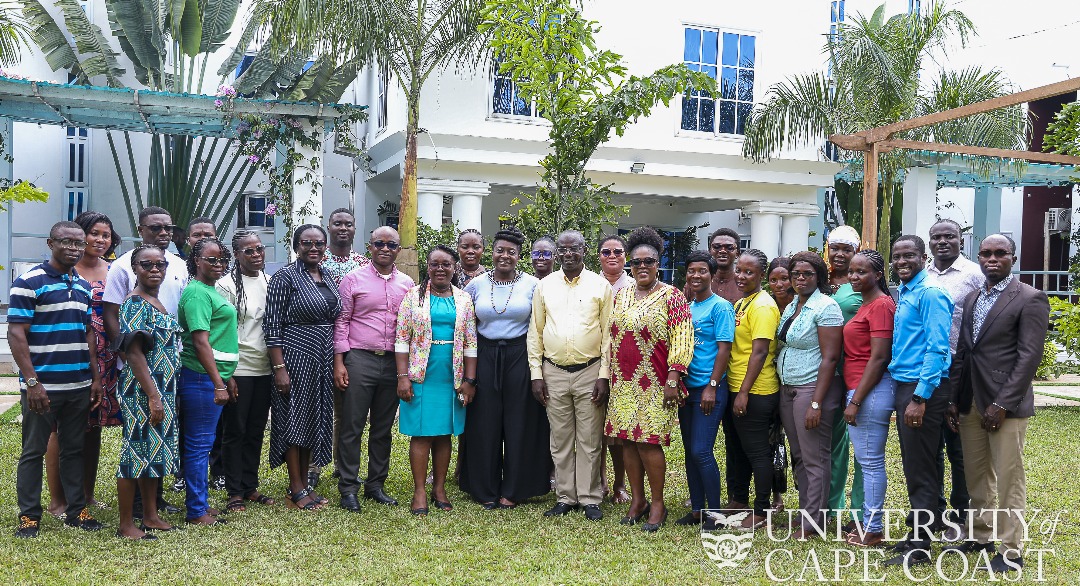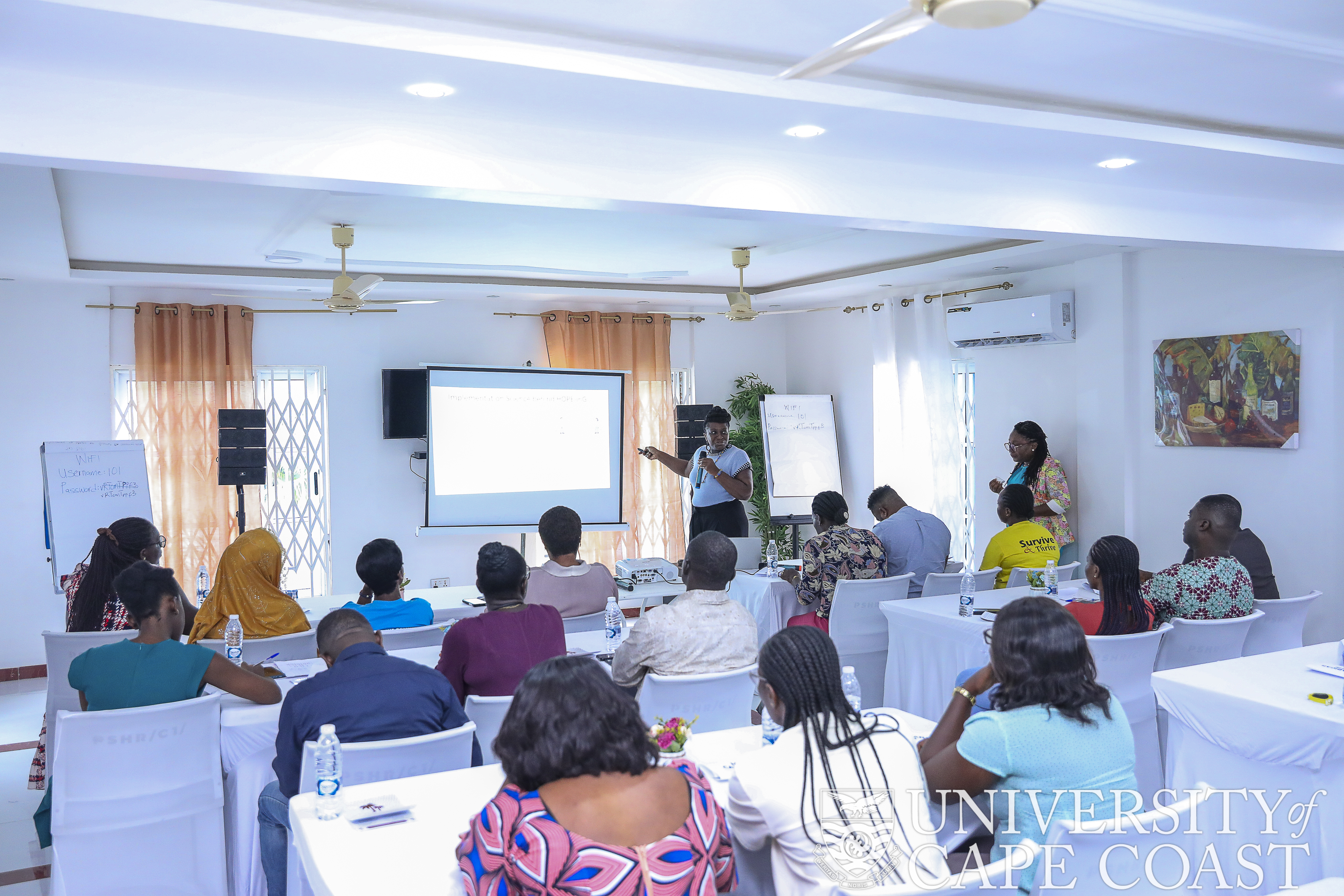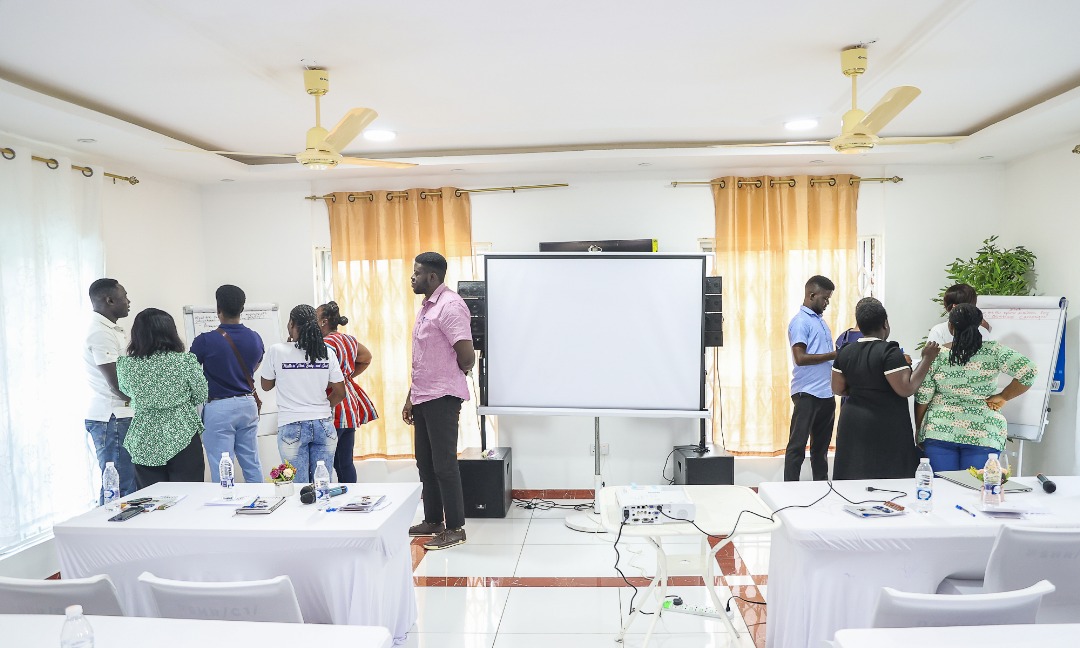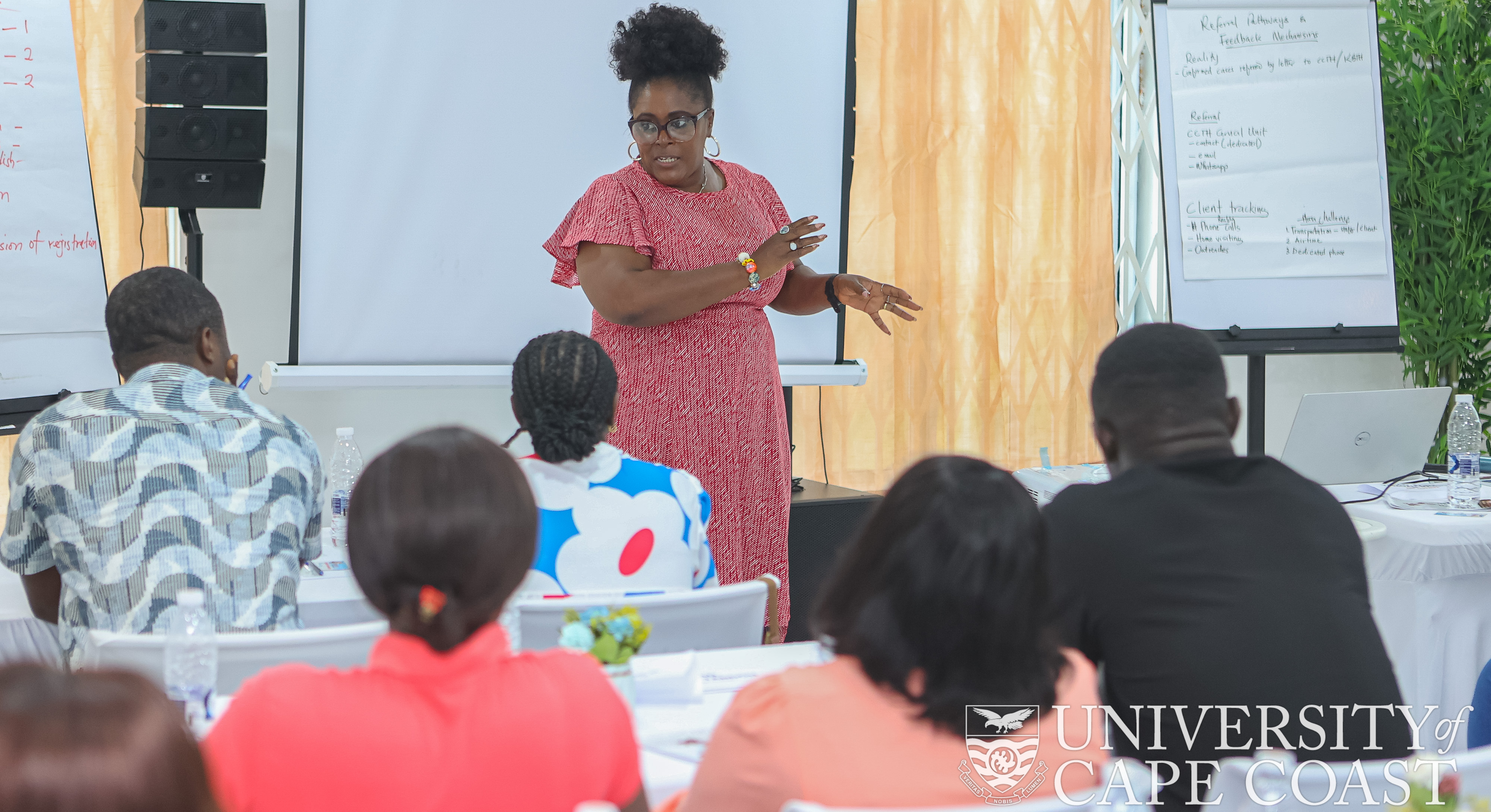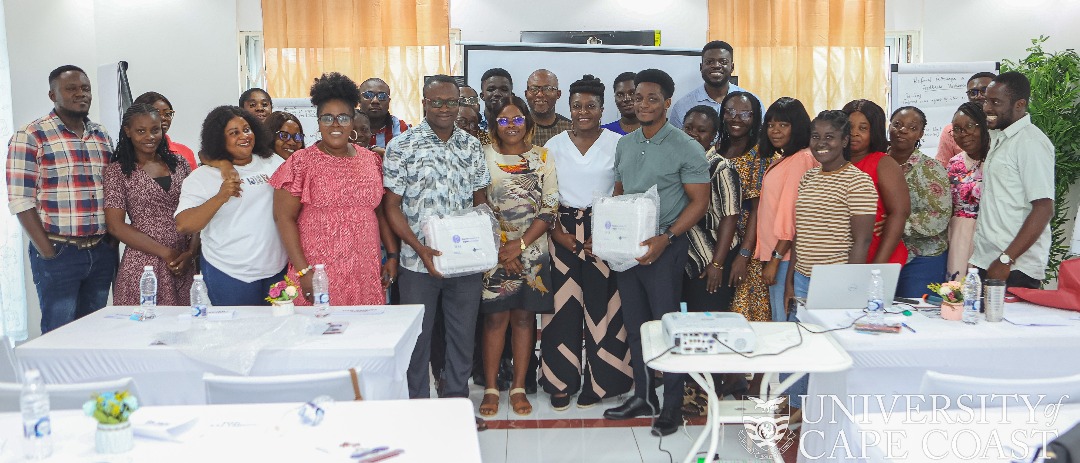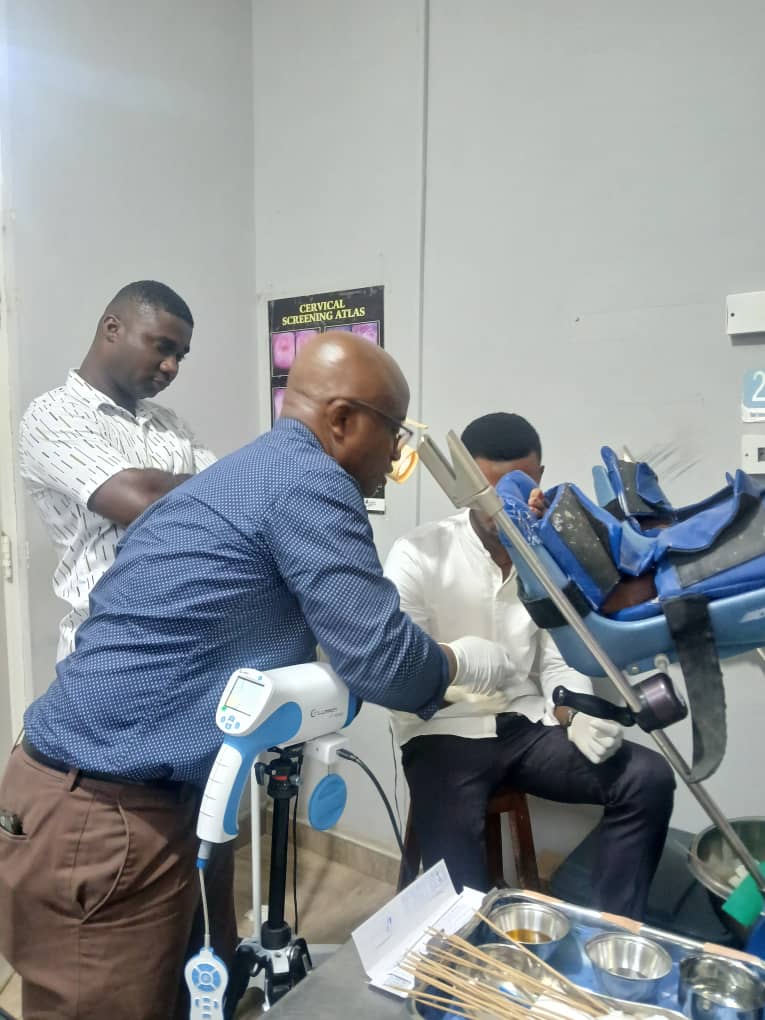A two-week capacity-building workshop on Cervical Cancer prevention has been held in Cape Coast for selected healthcare workers in the Central Region.
A total of 40 participants from the Saltpond Municipal Hospital, Saltpond and Our Lady of Grace Hospital, Breman Asikuma, including doctors, nurses, midwives, laboratory technicians, health promotion officers and health information officers. They were equipped with new knowledge and practical skills to advance the fight against cervical cancer in Ghana.
The workshop was held between 8th and 19th September, 2025 at Park Springs Hotel and Resort.
The training focused on the basics of implementation science, as well as on increasing health professionals’ knowledge of current evidence-based interventions and approaches for delivering cervical cancer prevention services.
Prof. Nadia Sam-Agudu (University of Minnesota, USA) making a remark at the workshop
The workshop included sessions on the World Health Organisation's three pillars for cervical cancer elimination, which covered primary, secondary and tertiary prevention strategies.
Hands-on practical sessions with live patients were also held at the Cape Coast Teaching Hospital for the midwives and doctors.
At the end of the training, the participating facilities were each presented with a thermocoagulator and a digital colposcope, which are equipment needed to complete the screening of women and also treat those who are found to have precancerous lesions.
The workshop was organised as part of the Home-based cervical Cancer Prevention and Education in Ghana (HOPE-inG Project), a five-year implementation science-based project funded by the United States’ National Institutes of Health. HOPE-inG project aims to address critical gaps in cervical cancer screening uptake among women living with HIV in Ghana.
Some participants in the workshop
The project is being implemented by the University of Cape Coast in collaboration with Baylor University and the University of Minnesota, USA.
Speaking at the closing session, Prof. Dorcas Obiri-Yeboah, a Principal Investigator (PI) of the Project, called for scale-up of comprehensive cervical cancer prevention services in Ghana.
She noted that cervical cancer is the second most common cancer among women in Ghana, after breast cancer and the second most common contributor to cancer-related death among women in Ghana.
Prof. Dorcas Obiri-Yeboah explaining a point during the workshop
“Vaccination, Screening, and Early Treatment are critical components of the WHO’s cervical cancer elimination strategy”, she explained.
“When combined with culturally appropriate awareness creation, these measures can put Ghana on the path towards eliminating cervical cancer”.
“Early detection is key to winning the war against cervical cancer. People should not fear going for screening,” she urged.
Facilitators and participants after the workshop
She further stressed that the Project would continue to sensitise both the public and health care providers on cervical cancer and the importance of HPV vaccination for their eligible children and routine screening for eligible women, especially women at higher risk, like those living with HIV.
Facilitators at the workshop included local transdisciplinary experts from the University of Cape Coast and Cape Coast Teaching Hospital (Multi-PI Prof. Dorcas Obiri-Yeboah, Prof. Nancy Ibu-Enyan, Prof. Kafui Akakpo, Dr. Sebastian Ken-Amoah and Dr. Gloria F. Nuer-Allornuvor); social behavioural researcher and Multi-PI Prof. Matthew Asare (Baylor University, USA) and implementation scientist and Multi-PI Prof. Nadia Sam-Agudu (University of Minnesota, USA).
ABOUT CERVICAL CANCER
Dr. Sebastian Ken-Amoah (of the UCC School of Medical Sciences), a Co-investigator, with some participants during a hands-on practice at the Cape Coast Teaching Hospital
Cervical cancer begins in the cells of the cervix, the lower, narrow end of the uterus (womb). The World Health Organisation (WHO) estimates that in 2022, there were about 660,000 new cases and 350,000 deaths from cervical cancer, globally which implies a woman dying every 2 minutes.
The causal link between cervical cancer and high-risk HPV strains is well-established. The long period between infection with high-risk HPV and the development of cervical cancer is often characterised by cervical precancer, which allows for screening and treatment of cervical precancer.
The Ghana Health Service has given a start date for a national HPV vaccination campaign of 7th October, 2025. The target is girls aged 9 – 14 years. After this campaign, the vaccine will be routinely available as part of the Expanded Programme of Immunisation for all girls when they reach 9 years in Ghana.

